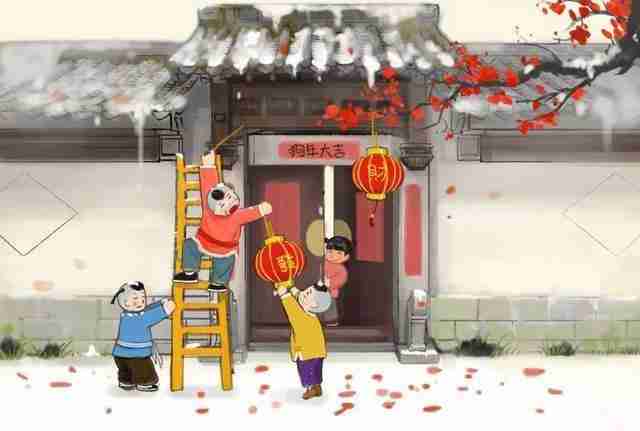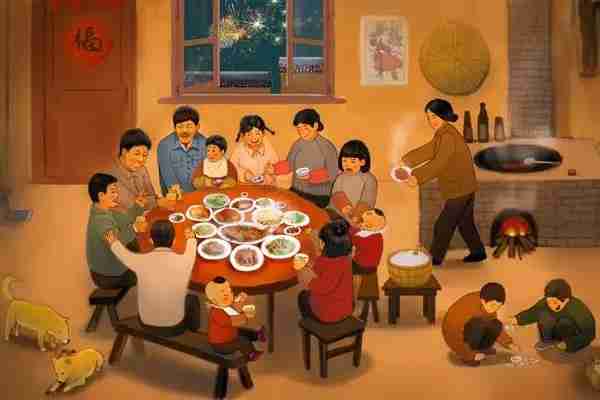The Chinese New Year’s Eve, as the name suggests, refers to the day on the calendar that comes right before the Chinese New Year.
What Is Chinese New Year Eve?
Celebrated the day before New Year’s, the New Year’s Eve celebrations are family-oriented celebrations that represent the day of reunion for Chinese families. It is the last day of the Chinese calendar or the last day of the 12th month (lunar month). The celebrations and the meaning of the celebrations have evolved over the years, but these celebrations can be traced back to more than 3500 years ago.
When Is Chinese New Year Eve?
This year, the Chinese New Year Eve is on the 31st January 2022
What Is Chinese New Year Eve Called?
It is also known as Chuxi or the Lunar New Year’s Eve, and it dates back to the time of the reign of the Shang Dynasty that ruled between 1600 and 1046BC, a time when the Chinese held many sacrificial ceremonies, one of which involved honoring the gods and the ancestors at the end of every year.
Chinese New Year Eve Celebrations
As a celebration that is primarily centered around the family and family reunions where the families join together to celebrate the beginning of the new year, the celebrations involve feasting.
On the afternoon of New Year’s Eve, there is a ceremony called ci nian in which families all gather to bid farewell to the old year. During these celebrations, the families offer sacrifices to the family gods, the heaven, and the ancestors, as well as the wandering souls. Note that the latter refers to the souls of the people that passed away without families and/or without receiving proper funeral processions, meaning these souls are still protecting their households’ properties. The gods of the properties are honored as well, with offerings to these gods put at the front door of homes.
There is also the reunion dinner or the Wei Lu or Tuan Nian, which is an important family celebration and gathering. Wei Lu translates to the circle around the stove, which also represents the reunion of the families.
During these celebrations, children are all expected to return home to their families, the married couples have to visit and celebrate at the home of the male relatives, and on the second day, they visit the home of the female relatives.
And to show you just how of a big deal the celebrations are, a family member absent from the grand feasts will be honored and their presence symbolized by the empty seat that is placed somewhere at the banquet.
Chinese New Year Eve Traditions

There are numerous traditions honored during the New Year’s Eve celebrations. The celebrations are all symbolic and quite important. Below are some of the big traditions that are followed during Chinese New Year Eve!
- Food
Food is, without a doubt, one of the most important parts of any celebration, but during the Chinese New Year’s Eve celebrations, food is not only at the center stage, but it’s also one of the most symbolic things incorporated in the traditions.
Essentially, all the best of Chinese foods, and also all the dishes with meaning, are served and in great abundance. The main reason why food is such a big part of these celebrations is that food not only brings together families but also is believed to have the power to bring the families great wealth in the new year.
There is also the fact that the Chinese like playing with symbols and words, with homonyms, often used. So, the names of dishes or the ingredients served with the food, especially the foods similar to certain phrases and words, will be used to refer to and to describe and express wishes for the new year.
Specific foods also carry different meanings. Whole fish, for example, symbolizes prosperity and surplus, or for others having leftovers in terms of money, while the whole chicken is also the symbol of prosperity, joy, and the togetherness of the family. And so, to strengthen the meaning of the fish dish, for instance, the meal is not eaten completely.
It is also not uncommon to notice Chinese phrases like ‘may there be a lot of surpluses each year,’ which, interestingly, sounds like May there be fish every year.
- Gathering
The next big thing after food during New Year’s Eve is the tradition of holding gatherings. In many Chinese towns, especially the ones in the South, people host grand family banquets for the celebration of New Year’s Eve. The gathering is known as the Happy Gathering. And being the last meal of the year, families have to sit together in these gatherings to enjoy the delicious traditional family dishes. Also, everyone in these gatherings is allowed to and even encouraged to drink.
But before the Happy Gathering, every family is expected and required to make a sacrifice to the ancestors -3 or 4 generations of the dead. During this part of the celebration, the families have to set the table for different dishes, and they also have to have a seat for each ancestor to be honored. The only person that pours drinks for the ancestors is the eldest family member. And after burning candles and joss sticks, the ancestors are expected to start eating, and during this time, the rest of the family is expected to worship the ancestors on their bended knees and bowing (kowtow, a way of showing deep respect through prostration). Once this part of the gathering ends and after the banquet, the family members sit around the fireplace, all together, singing, chatting, playing cards, laughing, and in most cases, staying up late until the dawn of the next morning.
- Gala TV Show
In preparation for the Spring Festival or New Year’s Celebrations, there is a gala TV show that is broadcast throughout China by the China Central Television, and it involves a lot of dancing, singing, cross-talk, sketch comedy, etc. Interestingly, the show is organized and put together for 6 months before the day. The show runs until midnight, and when the clock strikes midnight, all watching cheer to a Happy New Year.
- Bamboo burning and firecrackers
Traditional Chinese cultures hold the belief that the devil and the evil spirits are afraid of the sounds made by bamboos, so bamboo is burned on this day to keep out the devil. It is also done for fun.
- The Kitchen God
This is the other aspect of Chinese New Year’s Eve, and it’s important because, for the Chinese, the kitchen god is the Jade Emperors’ ambassador to every Chinese family. And it is believed that at midnight on New Year’s Eve, every family’s kitchen god goes to heaven to report the family’s deed for the year, then returns on New Year’s and to welcome the kitchen god, every family welcomes him by passing around the kitchen a picture of the kitchen god around the kitchen.
- Invitation of the door god
This tradition involves inviting the door god to the home by pasting the picture of the door god on the home’s front door as the talisman that keeps out evil from the family.
- Peach Wood
This is used to exorcise the evil that would cause plagues. It is a tradition that dates back to Qin Dynasty’s reign.
What To Wear On Chinese New Year Eve
For extra luck, the Chinese wear red underwear, although anything else in the color red is acceptable. This applies to the Lunar New Year celebrations too. Red is an auspicious color in Chinese which is believed to maximize good fortune and luck.
What To Do On Chinese New Year Eve
There is a lot that you can do during Chinese New Year’s Eve, but because the day is considered a family reunion day, consider spending time with family, catching up, and welcoming the New Year.
Besides eating together, you could also play games such as mah-jong or watch the Spring Festival Gala on TV.
What Not To Do On Chinese New Year Eve
- It is important to not argue with people, swear, or curse
- Do not go to bed too early on New Year Eve – stay up past midnight or early dawn
- Don’t wear your old clothes
What To Eat On Chinese New Year Eve
Some of the foods that are traditionally allowed and enjoyed on New Year’s Eve include whole chicken and fish dishes, among other foods like dumplings and spring rolls.
Chinese New Year Eve Dinner

Dinner on New Year’s Eve is important, and it’s often a large family banquet that features all the nice traditional Chinese royal and savory foods in abundance.
What Is The Significance Of The Chinese New Year Eve Dinner?
The dinner, which really is a gathering, is a huge part of the celebration that signifies a celebration for the end of the old year while welcoming the new year is the biggest and happiest way, with the rest of the family.
Why Eat Chinese Food On New Year’s Eve?
A large variety of foods are eaten during the New Year’s Eve gatherings, and the reason why they go all-out is that the day is a special day for families, and also food is believed to bring them prosperity, good luck, and great fortune, all year round. Spring rolls, dumplings, and noodles are the standard food options eaten because they are believed to guarantee good luck and prosperity.
Chinese New Year Eve Food
- Spring rolls which are an East China traditional dish
- Dumplings are a tradition in northern and southern china
- Glutinous rice cakes or Nian Gao – this is also meaningful, and it symbolizes getting higher and better year after year
- Good fortune fruits like pomelos, tangerines, and oranges. These fruits are believed to bring good fortune, wealth, and fullness.
- Longevity noodles that represent the Chinese people’s wish to live for many years